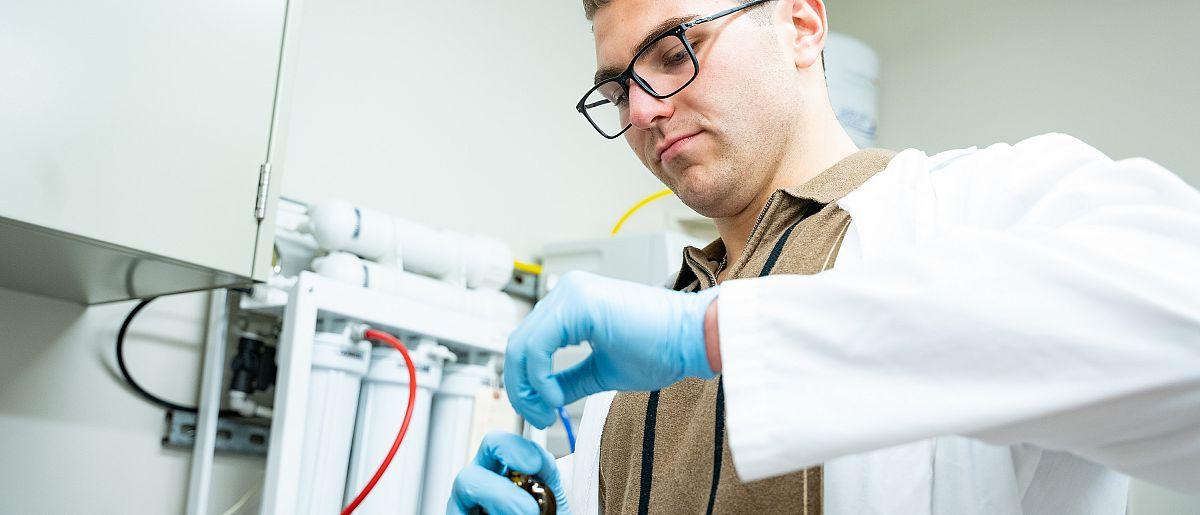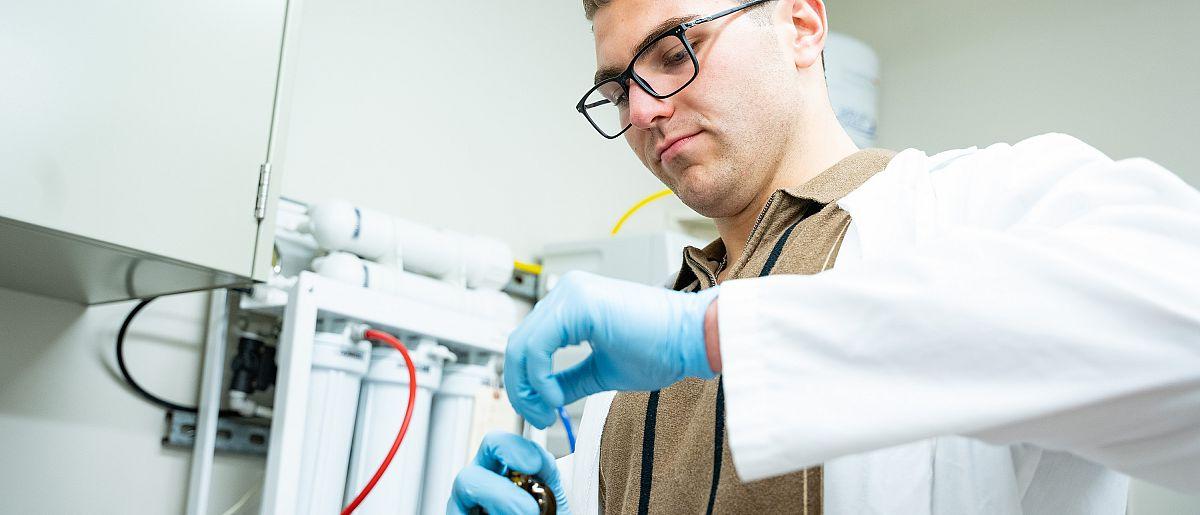When you enroll at Susquehanna, you’ll be paired with an advisor and application tool to guide you in your course planning and scheduling. The following is an excerpt from the complete course catalog. Enrolled students follow the requirements of the course catalog for the academic year in which they declare each major and/or minor, consult with their advisor(s) and the Academic Planning Tool.
Neuroscience studies
The B.S. degree in neuroscience requires 61 semester hours in biology, chemistry, and psychology, with grades of C- or better in courses counting toward the major. The program involves 37 semester hours of required major courses that serve as the major’s foundation, providing students with an understanding of the disciplines that come together to make up the field of neuroscience. In addition, the 61 semester hour total includes 12 semester hours of chemistry courses. Another 12 semester hours of upper-division electives are taken, which must include at least one course with a laboratory component. The neuroscience major capstone represents a full academic year of extended experimental investigation in collaboration with a faculty mentor. Neuroscience students will be able to complete many of their Central Curriculum requirements within the major.
37 Required Major Courses
4 NEUR-101 Introduction to Neuroscience
4 NEUR-510 Neuroscience Student Research I
4 NEUR-511 Neuroscience Student Research II
4 BIOL-102 Cell Biology and Genetics
4 BIOL-455 Functional Neuroanatomy
4 PSYC-101 Principles of Psychology
4 PSYC-123 Statistics for the Behavioral Sciences
4 PSYC-223 Research Methods in Psychology
4 PSYC-342 Behavioral Neuroscience
1 PSYC-360 Laboratory in Behavioral Neuroscience
12 Cognate Chemistry Courses
4 General Chemistry I (CHEM-103, CHEM-111)
4 General Chemistry II or Structure and Reactivity (CHEM-104 or CHEM-232)
4 CHEM-221 Organic Chemistry I
12 Advanced Electives (at least one elective must include a laboratory component)
4 BIOL-300 Developmental Biology
and BIOL-301 Developmental Biology lab
4 BIOL-302 Comparative Vertebrate Anatomy
and BIOL-303 Comparative Vertebrate Anatomy lab
4 BIOL-306 Cell Biology
and BIOL-307 Cell Biology lab
4 BIOL-310 Animal Physiology
and BIOL-315 Animal and Exercise Physiology lab
4 BIOL-316 Molecular Biology
and BIOL-317 Molecular Biology lab
4 BIOL-318 General Biochemistry
4 BIOL-319 Advanced Genetics
4 BIOL-320 Exercise and Extreme Physiology
and BIOL-315 Animal and Exercise Physiology lab
4 BIOL-324 Animal Behavior
and BIOL-325 Animal Behavior lab
4 BIOL-400 Immunology
and BIOL-401 Immunology lab
4 BIOL-440 Behavioral Neuroendocrinology
and BIOL-441 Behavioral Neuroendocrinology lab
4 CHEM-302 Medicinal Chemistry
4 BIOL-424/CHEM-424 The Biochemistry of Metabolism
and BIOL-429/CHEM-429 The Biochemistry of Metabolism lab
4 BIOL-422/CHEM-422 The Biochemistry of Nucleic Acid
and BIOL-423/CHEM-423 The Biochemistry of Nucleic Acid lab
4 BIOL-426/CHEM-426 The Biochemistry of Proteins and Enzymes
and BIOL-427/CHEM-427 The Biochemistry of Proteins and Enzymes lab
4 HLCR-302 Human Physiology
4 NEUR-500 Topics in Neuroscience
4 PHIL-228 Neuroethics
4 PHIL-315 Philosophy of Mind
4 PSYC-320 Psychological Disorders
4 PSYC-340 Cognitive Psychology
4 PSYC-344 Learning Processes
4 PSYC-346 Sensation and Perception
4 PSYC-348 Psycholinguistics
1 PSYC-361 Laboratory in Cognitive Psychology
1 PSYC-362 Laboratory in Learning Processes
1 PSYC-363 Laboratory in Sensation and Perception
Honors in Neuroscience
The departmental honors program encourages and recognizes outstanding performance in neuroscience. To graduate with honors in neuroscience, students must do the following:
- Complete all of the requirements for the major, and
- Have an overall cumulative GPA of 3.25 and a neuroscience GPA of 3.50












